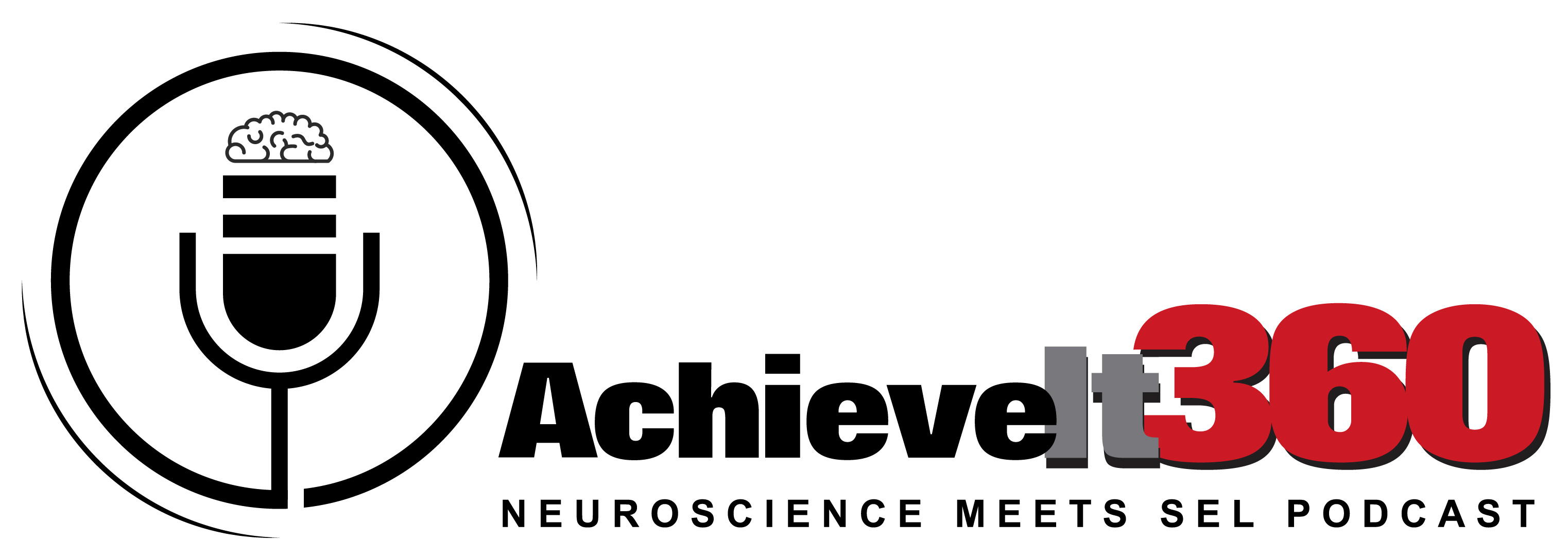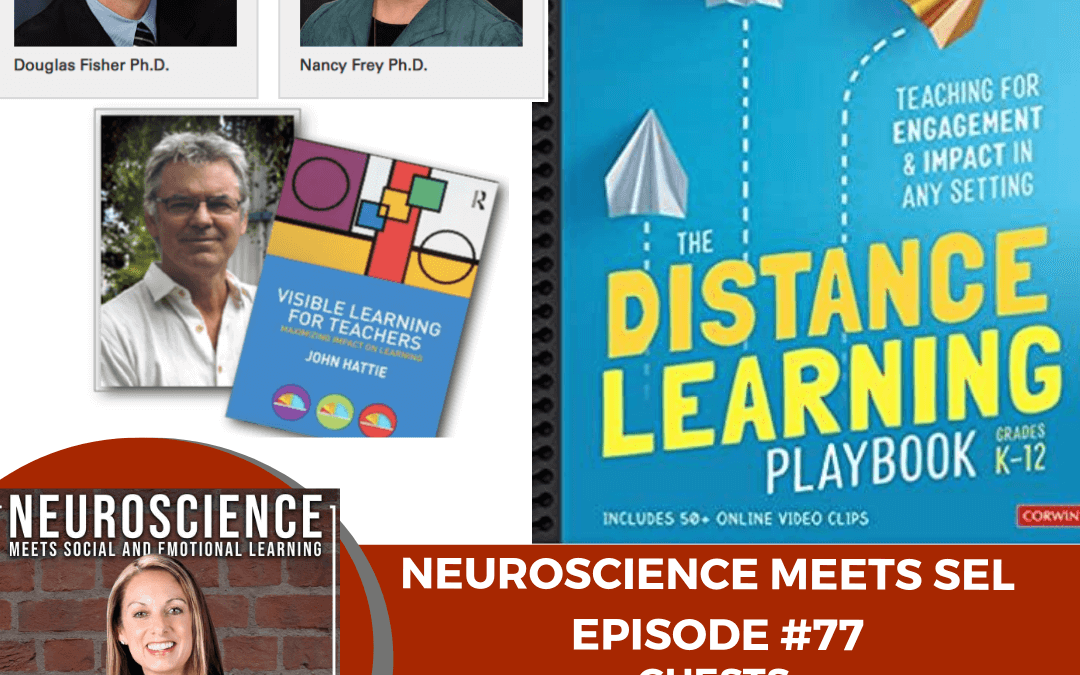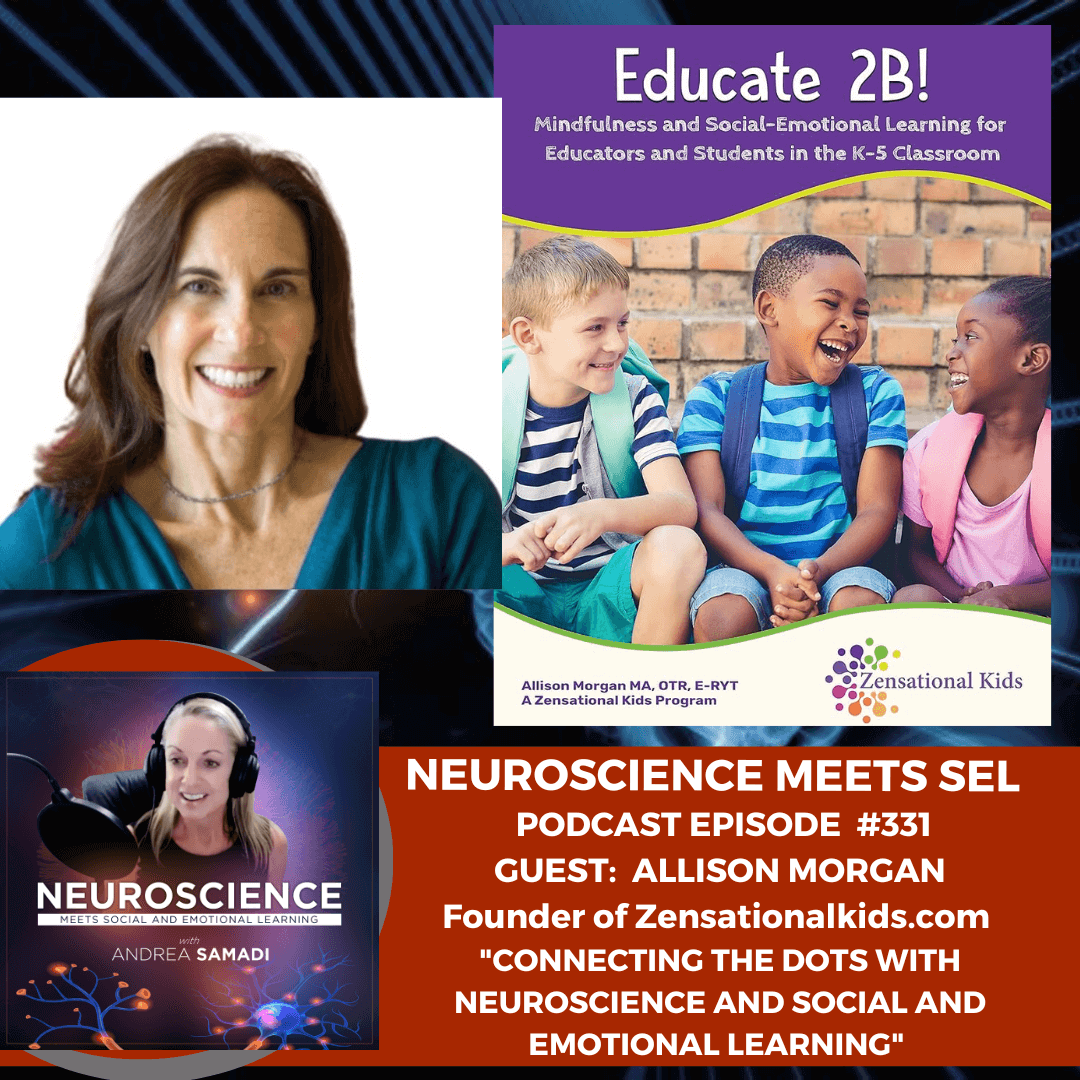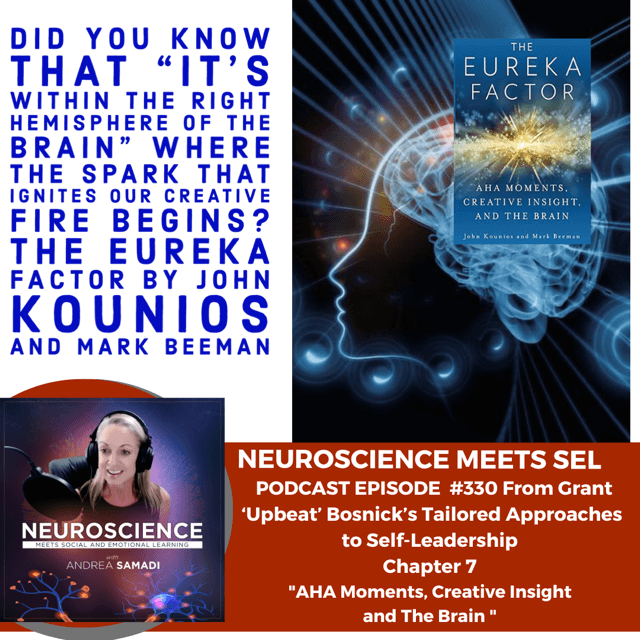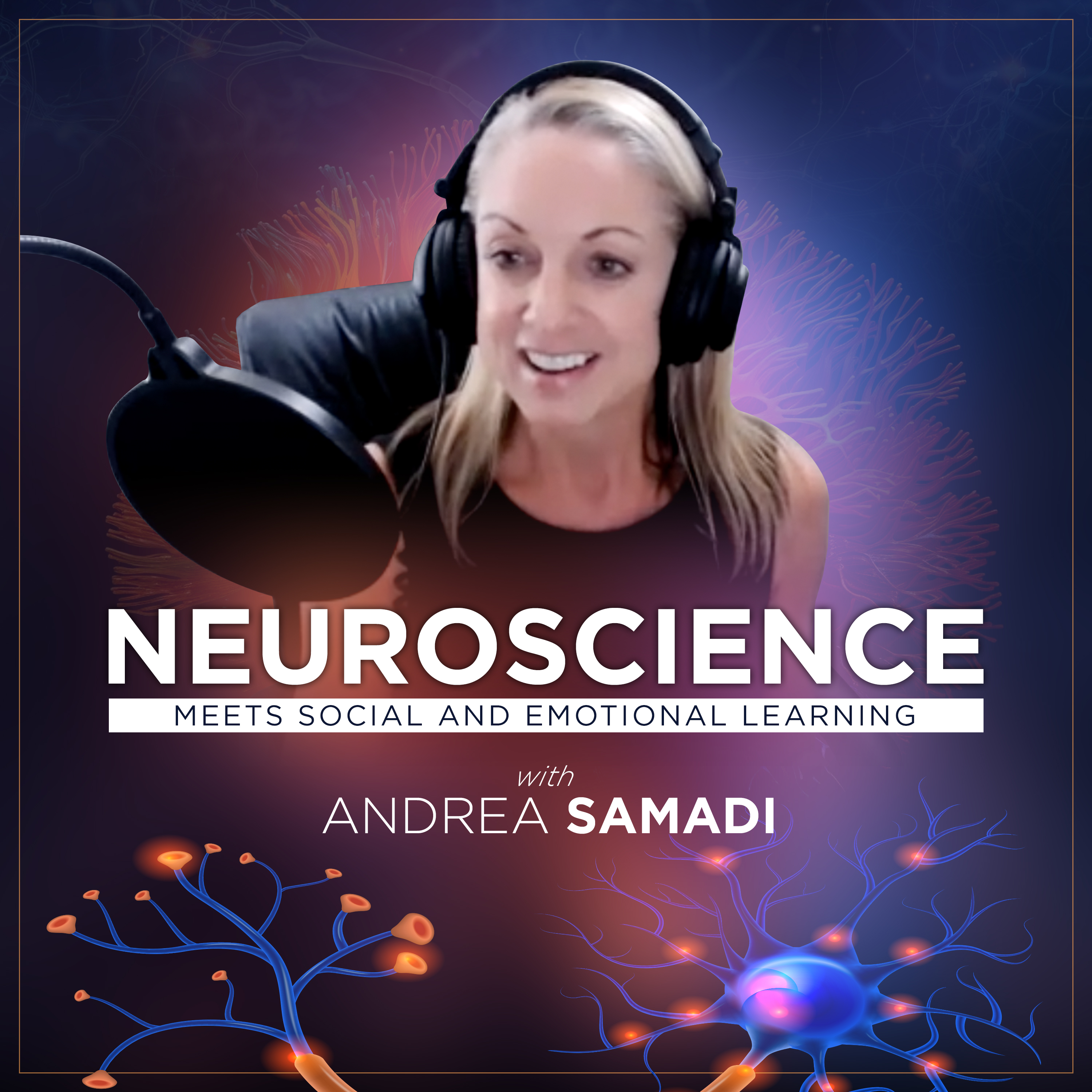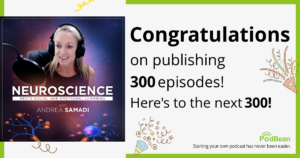Welcome back to the Neuroscience Meets Social and Emotional Learning podcast, episode #77 with Doug Fisher and Nancy Frey, who are both professors at San Diego State University in Educational Leadership where they focus on policies and practices in literacy and school leadership. Watch the interview on YouTube here.
For those who are new here, my name is Andrea Samadi, I’m a former educator who created this podcast to bring the most current neuroscience and educational research, matched with social and emotional skills, with interviews from experts who have risen to the top of their field with specific strategies or ideas that you can implement immediately, to take your results to the next level. My vision is to bring the experts to you, share their books, resources and ideas to help you to implement their proven strategies, whether you are a teacher working in the classroom or online, a student, or parent working in the corporate space.
Welcome Doug and Nancy, it’s wonderful to meet you after enjoying your books for the past few days.
Doug and Nancy are also both teacher leaders at Health Sciences High & Middle College, an award-winning open-enrollment public school in the City Heights neighborhood of San Diego that they co-founded in 2007. For over 2 decades, they have dedicated their work to the knowledge and skills teachers and school leaders need to help students attain their goals. Their shared interests include instructional design, curriculum development, and professional learning. Doug and Nancy have co-authored numerous articles and books on literacy, and leadership that I’ve included links to in the show notes, including: This is Balanced Literacy,[i] The Teacher Clarity Playbook, PLC+,[ii] All Learning is Social & Emotional[iii], The Teacher Credibility and Collective Efficacy Playbook,[iv] and most recently The Distance Learning Playbook[v] with co-author John Hattie[vi].
-
- I couldn’t start this podcast, without acknowledging John Hattie’s Visible Learning Research
-
- and the fact that he is the co-author of your Distance Learning Playbook. I 100% agree with the write-up I saw in your book that says “The pandemic teaching of mid 2020 was not distance learning but rather crisis teaching.” But starting now, teachers have the opportunity to prepare for distance learning with purpose and intent.”
-
- I’d love to learn how the idea of The Distance Learning Playbook came about and why it was important for you to include John Hattie as your co-author. (Discuss the playbook style of PD book and about John’s Visible Learning research).My next question for you ties into our last podcast, episode #76 with Michael Horn on “Using a Positive Lens to Explore Change and the Future of Education”
-
- where he spoke about the importance of embracing technology as an important component of our future, and the article you wrote for SmartBrief.com on “4 Steps for Powerful Distance Learning Experiences”
-
- ties right into this topic. This morning I had both my girls go “back to school” online and I was grateful that I felt a bit more prepared for this after getting ready for this interview and reading that article. Could you outline these 4 steps as many schools and families are like me, in the beginning stages of going back to school, with distance learning being the platform to launch the school year, before students transition to in person learning?Because this podcast focuses on social emotional learning, I’d love to dig a little deeper into the concept of the all-important teacher-student relationship. I know that building relationships is one of John Hattie’s teaching effects from one of our earlier episodes, #7 with Assistant Superintendent Greg Wolcott, who wrote his book Significant 72 based on the importance of student-teacher relationships.
-
- What type of impact do those relationships have on student learning and how do teachers build those relationships from a distance?Tying in closely with the teacher-student relationship is a concept you call Teacher Credibility. In fact, one of your other playbooks is titled
Teacher Credibility and Collective Efficacy
-
- .
-
- However, in the distance learning playbook, you focus on how to build that credibility at a distance. Can teachers really do that when they’re not in the same room with their students?I noticed Module 1 of your
Distance Learning
-
- book is titled “Take Care of Yourself” referring to teachers/educators taking care of themselves first. I really appreciate that you put this as Module 1. Can you tell me about why self-care is at the front and center in your playbook and tie in the fact that All
Learning is Social and Emotional
-
- and that as parents, and educators, the need to take care of ourselves before we reach out and help our children or students?
- I know you’re both big proponents of Teacher Clarity and how that clarity has the potential to accelerate student learning. You’ve identified 3 questions that contribute to teacher clarity. Can you briefly cover those and how they apply to distance learning?Lastly, and tying back to social emotional learning, in your playbook you discuss the socioemotional links to feedback. Tell us about the importance of a classroom climate (be it physical or virtual) where errors are celebrated and expected and how that plays into feedback.What are your final thoughts to tie everything in together on the future of education?
Thank you so much for taking the time to share your work and powerful vision for education. If someone wants to learn more about you, is the best way https://www.fisherandfrey.com/ and they can find you both on twitter Nancy is @NancyFrey and Douglas is @DFisherSDSU
Also, Corwin Press is also offering a 30% discount plus free shipping through the end of August on all books and I will have the link for your Distance Learning Playbook[xiv] in the show notes.
REFERENCES:
[i] https://us.corwin.com/en-us/nam/this-is-balanced-literacy-grades-k-6/book266872
[ii] https://us.corwin.com/en-us/nam/plc/book266974
[iii] All Learning is Social and Emotional http://www.ascd.org/Publications/Books/Overview/All-Learning-Is-Social-and-Emotional.aspx
[iv] https://us.corwin.com/en-us/nam/the-teacher-credibility-and-collective-efficacy-playbook-grades-k-12/book271561
[v] 30% off all books at Corwin Press though the month of August 2020 https://us.corwin.com/en-us/nam/thedistancelearningplaybook
[vi] John Hattie https://visible-learning.org/
[vii] John Hattie https://visible-learning.org/
[viii] The Distance Learning Playbook https://us.corwin.com/en-us/nam/thedistancelearningplaybook
[ix]Neuroscience Meets Social and Emotional Learning Podcast Episode #76 with Michael Horn on “Using a Positive Lens to Explore Change and the Future of Education” https://andreasamadi.podbean.com/e/speaker-and-writer-michael-b-horn-on-using-a-positive-lens-to-explore-change-and-the-future-of-education/
[x] “4 Steps for Powerful Distance Learning Experiences.” For Smartbrief by Douglas Fisher and Nancy Frey, July 16, 2020. https://smartbrief.com/original/2020/07/4-steps-powerful-distance-learning-experiences
[xi] Neuroscience Meets SEL Podcast EPISODE #7 with Greg Wolcott https://www.achieveit360.com/assistant-superintendent-greg-wolcott-on-building-relationships-in-todays-classrooms/
[xii]Teacher Credibility and Collective Efficacy https://us.corwin.com/en-us/nam/the-teacher-credibility-and-collective-efficacy-playbook-grades-k-12/book271561
[xiii] All Learning is Social and Emotional http://www.ascd.org/Publications/Books/Overview/All-Learning-Is-Social-and-Emotional.aspx
[xiv] 30% off all books at Corwin Press though the month of August 2020 https://us.corwin.com/en-us/nam/thedistancelearningplaybook
Podcast: Play in new window | Download
Subscribe: Apple Podcasts | RSS
